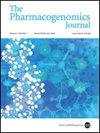药物基因组学指导的阿片类药物治疗疼痛:随机对照试验的系统回顾和荟萃分析。
IF 2.9
3区 医学
Q2 GENETICS & HEREDITY
引用次数: 0
摘要
由于与遗传变异相关的患者反应不同,优化阿片类药物治疗具有挑战性。药物基因组学指导的处方有望实现个性化,但其临床效果需要评估。我们对对照试验进行了系统回顾和荟萃分析,比较药物基因组学指导与成人标准阿片类药物处方。遵循PRISMA,我们评估了偏倚风险(RoB 2)和证据确定性(GRADE)。从筛选的2496篇文章中,有6篇rct符合纳入标准。荟萃分析显示,药物基因组学指导的处方与阿片类药物消耗显著减少相关(SMD -0.38, 95% CI -0.67至-0.08,p = 0.01)。然而,两组间疼痛强度无显著差异(SMD -0.31, 95% CI -0.89 ~ 0.27, p = 0.30)。关于不良事件的证据仅限于一项试验,该试验报告了药物基因组组发生率的统计学显著降低(中位数[IQR]: 1[0-2]对3 [1-5];p本文章由计算机程序翻译,如有差异,请以英文原文为准。

Pharmacogenomic-guided opioid therapy for pain: a systematic review and meta-analysis of randomised controlled trials
Optimising opioid therapy is challenging due to variable patient responses linked to genetic variation. Pharmacogenomic-guided prescribing holds promise for personalisation, but its clinical effectiveness requires evaluation. We performed a systematic review and meta-analysis of RCTs comparing pharmacogenomic-guided versus standard opioid prescribing in adults. Adhering to PRISMA, we assessed risk of bias (RoB 2) and evidence certainty (GRADE). Six RCTs met inclusion criteria from 2496 screened articles. Meta-analysis showed pharmacogenomic-guided prescribing was associated with significantly reduced opioid consumption (SMD −0.38, 95% CI −0.67 to −0.08, p = 0.01). However, no significant difference in pain intensity was observed between groups (SMD −0.31, 95% CI −0.89 to 0.27, p = 0.30). Evidence regarding adverse events was limited to one trial, which reported a statistically significant reduction in incidence in the pharmacogenomic group (median [IQR]: 1 [0–2] vs. 3 [1–5]; p < 0.01). Further research is needed to determine if pharmacogenomics can improve opioid therapy outcomes.
求助全文
通过发布文献求助,成功后即可免费获取论文全文。
去求助
来源期刊

Pharmacogenomics Journal
医学-药学
CiteScore
7.20
自引率
0.00%
发文量
35
审稿时长
6-12 weeks
期刊介绍:
The Pharmacogenomics Journal is a print and electronic journal, which is dedicated to the rapid publication of original research on pharmacogenomics and its clinical applications.
Key areas of coverage include:
Personalized medicine
Effects of genetic variability on drug toxicity and efficacy
Identification and functional characterization of polymorphisms relevant to drug action
Pharmacodynamic and pharmacokinetic variations and drug efficacy
Integration of new developments in the genome project and proteomics into clinical medicine, pharmacology, and therapeutics
Clinical applications of genomic science
Identification of novel genomic targets for drug development
Potential benefits of pharmacogenomics.
 求助内容:
求助内容: 应助结果提醒方式:
应助结果提醒方式:


